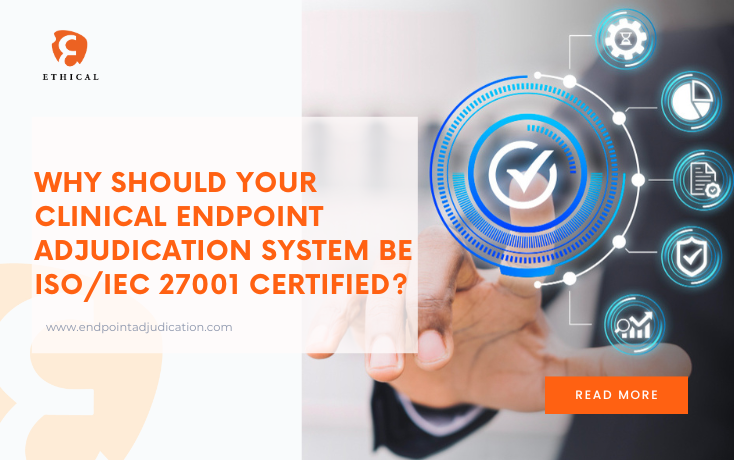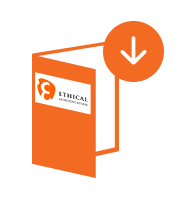ISO27001 is an internationally recognized standard that provides a framework for organizations to establish, implement, maintain and continually improve their information security management system. In a previous article, we explored the key requirements for ISO/IEC 27001 compliance in clinical trials. In this second article, we will delve into the cybersecurity requirements of ISO27001, with a focus on encryption, web application firewalls, vulnerability assessments, and access control and management.
There are several reasons why a clinical trial system should be protected by robust cybersecurity measures. First, participants in clinical trials trust that their personal information will be kept secure and that their privacy will be respected. Any breach of this trust can have serious consequences, not only for the individuals involved but also for the integrity of the entire clinical trial process. Another reason why cybersecurity is important in clinical trial systems is to safeguard the integrity of the research itself. If the data were to be compromised or manipulated, it could lead to inaccurate conclusions and potentially harm patients. Lastly, cybersecurity is essential in clinical trial systems to protect against potential cyber attacks. A successful cyber attack on a clinical trial system could have far-reaching consequences, ranging from delayed research timelines to compromised patient safety. Investing in strong cybersecurity measures is therefore essential to maintain the trust of patients, uphold the integrity of research, and mitigate potential risks. This article delves into several cybersecurity requirements of ISO27001. By empowering our clients’ organizations with the knowledge and tools to safeguard their data effectively, Ethical helps clients stay ahead of potential threats and ensure the security of sensitive information.
Understanding the importance of encryption in ISO 27001 compliance
Encryption plays a vital role in protecting data at rest and in transit, ensuring that even if it is intercepted, unauthorized parties cannot decipher it. It involves the use of cryptographic algorithms to convert data into an unreadable format, known as ciphertext, which can only be decrypted with the appropriate key. By implementing encryption measures, organizations can effectively safeguard sensitive information from unauthorized access.
One of the key requirements of ISO 27001 is the implementation of appropriate encryption controls to protect confidential information. Encryption should be applied to all sensitive data, such as personally identifiable information (PII), financial records, and intellectual property. This includes data stored on servers, transmitted over networks, and even data stored on mobile devices. By encrypting data, organizations can ensure that even if it falls into the wrong hands, it remains secure and unintelligible.
Web Application Firewalls (WAF) and their role in ISO 27001 compliance
Web applications are a common target for cyber attacks, making them vulnerable to various threats such as SQL injections and cross-site scripting. Web Application Firewalls (WAF) are crucial for safeguarding web applications and protecting them from these types of attacks. A WAF acts as a protective shield between the web application and the user, monitoring and filtering incoming and outgoing traffic to detect and block malicious activities.
ISO 27001 recognizes the importance of securing web applications and includes requirements related to web application security controls. Implementing a WAF is one of the key measures organizations can take to comply with these requirements and protect their web applications from potential vulnerabilities.
Conducting vulnerability assessments for ISO 27001 compliance
Vulnerability assessments are a crucial aspect of ISO 27001 compliance, as they enable organizations to identify and address weaknesses in their systems before they can be exploited. A vulnerability assessment involves systematically scanning and testing systems, networks, and applications for potential vulnerabilities and weaknesses.
To effectively manage vulnerabilities and ensure compliance with ISO 27001, organizations should follow best practices in vulnerability management. This includes:
- Regularly scanning systems and applications for vulnerabilities using automated tools.- Maintaining an up-to-date inventory of assets and their associated vulnerabilities.
- Prioritizing remediation efforts based on risk and severity.
- Establishing a patch management process to promptly address known vulnerabilities.
- Conducting regular penetration testing to identify potential security weaknesses.
- Implementing a continuous monitoring system to detect and respond to new vulnerabilities.
The role of appropriate access control and management
One crucial aspect of the ISO27001 standard is secured access management. Secured access management refers to the processes and controls implemented to ensure that only authorized individuals can access the organization's information systems and data.
Implementing ISO27001 secured access management involves a systematic approach that starts with a comprehensive assessment of the organization's access control needs. This includes identifying the types of information that need to be protected, determining who should have access to it, and defining the appropriate levels of access for different individuals or groups. Based on this assessment, appropriate access controls can be implemented, such as strong passwords, multi-factor authentication, and role-based access control.
ISO27001 also emphasizes the need for regular monitoring and review of access controls to ensure their effectiveness. This includes conducting periodic audits, reviewing access logs, and promptly addressing any identified vulnerabilities or unauthorized access attempts.
Additionally, ISO27001 requires organizations to establish clear policies and procedures regarding access management, including guidelines for granting and revoking access rights, as well as training programs to educate employees about their responsibilities in safeguarding access to sensitive information.
By implementing ISO27001 secured access management practices, organizations can significantly reduce the risk of unauthorized access to their information systems and data.
Ethical has been ISO certified since 2006
Ethical is audited annually by an authorized ISO 27001 certification authority which guarantees compliance with the ISO/IEC 27001 Information Security Management System (ISMS) requirements and security controls. By undergoing annual audits by certified ISO auditors for almost twenty years, Ethical has strengthened our commitment to information security.
In conclusion, the ISO27001 standard provides a layered approach to security by helping organisations address different aspects of information security and protecting sensitive data from various threats. Ethical is audited annually by an authorized ISO 27001 certification authority which guarantees compliance with the ISO/IEC 27001 Information Security Management System (ISMS) requirements and security controls. Thus, by adhering to the essential cybersecurity requirements of ISO 27001 such as encryption, web application firewalls, vulnerability assessments and access control , Ethical’s customers enhance their information security posture, minimize the risk of data breaches, and demonstrate their commitment to protecting sensitive information.




